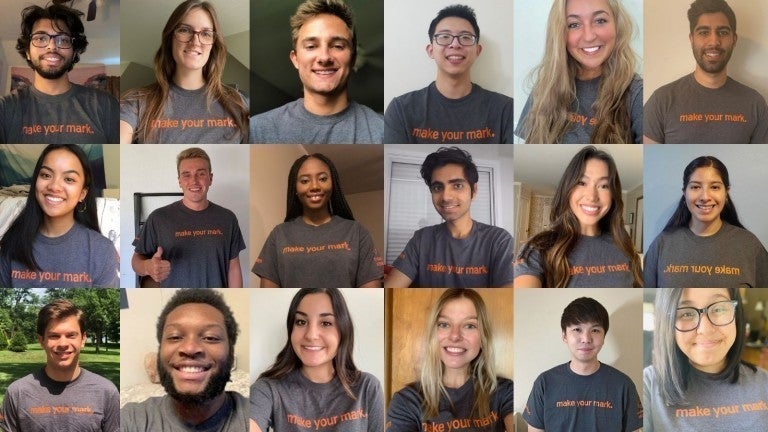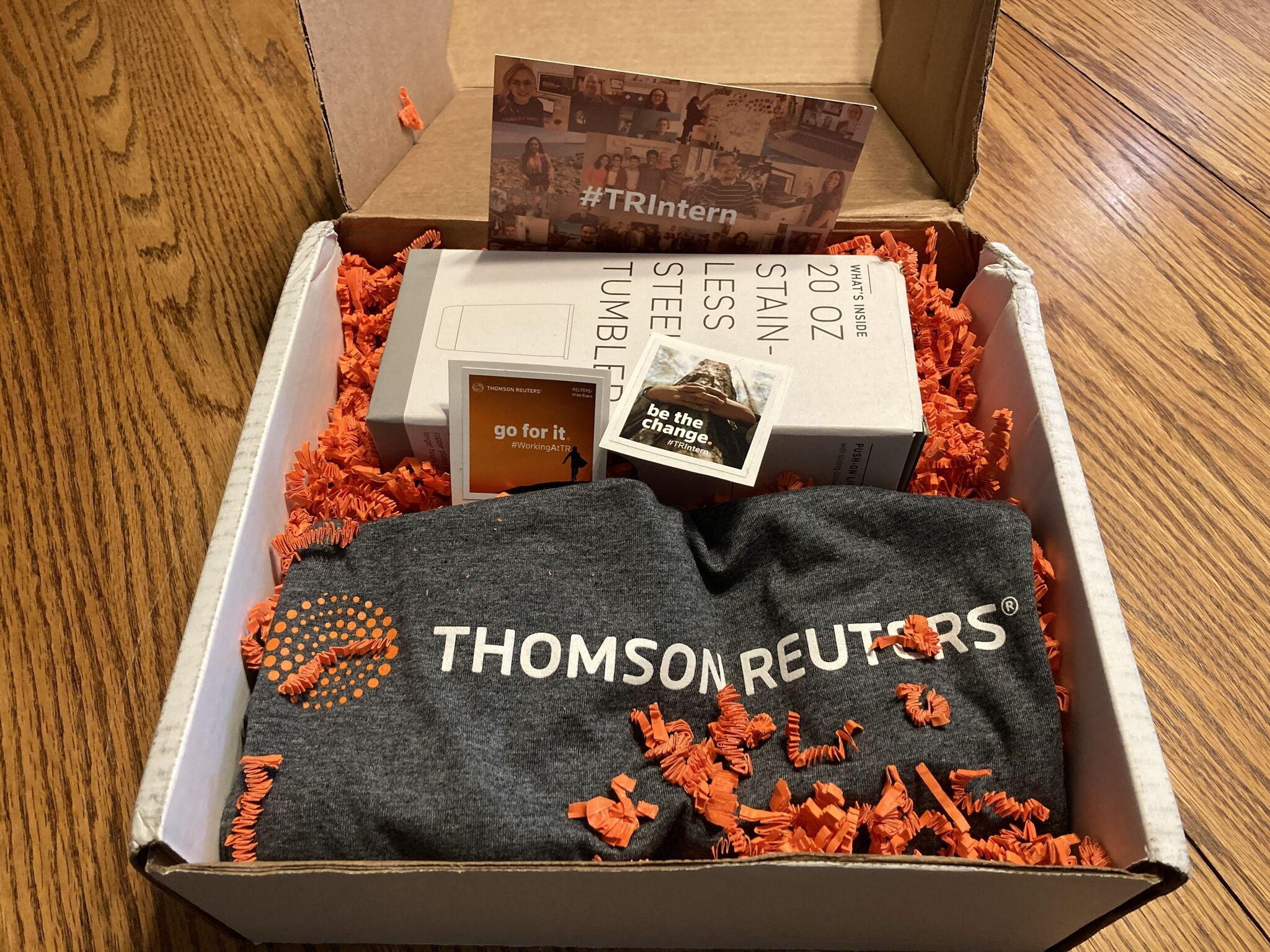Thomson Reuters provides students with impactful work
By: Krista Henry (she/her)
Celebrating National Work Integrated Learning (WIL) month
“The University of Waterloo has provided us with not only the best-in-class interns but also long-term employees,” says Shreya Raj (she/her), campus recruiter at Thomson Reuters.

Shreya Raj (she/her)
Campus recruiter at Thomson Reuters
Thomson Reuters provides business information services in law, tax, compliance, government, and media. The organization has been hiring University of Waterloo co-op students since 2018 in roles such as software developer, data scientist and innovation engagement coordinator.
Thomson Reuters has also offered project experiences as part of the Waterloo Experience (WE) Accelerate program. This new WIL program from the University of Waterloo’s Co-operative and Experiential Education department helps co-op students who were unable to secure a job in their first co-op work term. Students get the opportunity to develop in-demand skills through content provided by experts across industries and to participate in team-based project experiences.
Shreya shares her reasons why interns have become an important part of Thomson Reuters talent recruitment:
How does hiring UWaterloo co-op students help with your recruitment and talent strategy?
Thomson Reuters is committed to inclusive hiring practices to foster an environment that encourages new ways of thinking and working. We believe strength is derived from the talents, ideas and experiences of our people. Our two talent strategies include developing future talent pipelines and expanding our business presence with deep and meaningful on-campus relationships. This is done while focusing on inclusion and diversity in our teams as well as leveraging our competitive advantage as a great company to start and grow to the best and brightest talent.
The University of Waterloo has provided us with not only the best-in-class interns but also long-term employees. Our goal is to build future talent pipelines and expand our brand presence deep within the school. With Waterloo, we have been able to build that pipeline with both new cohorts and previous interns who have joined us for multiple terms. In three years working with Waterloo, we have already hired more than 200 students for co-op terms and converted a percentage of them to join us in a full-time capacity.
How do you ensure a successful work term for both your organization and the co-op student?
Our interns have impactful projects that contribute to real business outcomes, robust self-paced training, and access to senior leaders. Our intern program offers real-world experience, professional and personal development. Students have the chance to learn from company executives during our Executive Speaker Series, networking and volunteer events. They also share their final presentations with business leaders. All these components have made Thomson Reuters’ program a best-in-class experience, resulting in a 98% intern overall satisfaction rate, 90% offer acceptance rate and 50% conversion rate.
What are some of the biggest benefits your organization has experienced from hiring a student?
Thomson Reuters is committed to the growth and career advancement of our employees. Our core values rely on people and talent to help drive the company's mission. It starts with the onboarding experience and plan that we roll out. Thomson Reuters heavily invests in learning and development which includes access to an extensive learning management system (LMS) connected to Thomson Reuters University and LinkedIn Learning modules. Internal mobility is a key metric to the success of our employees and is tracked at the leadership level.
Accelerating skills
Conor Lamont, a Waterloo computer science student, was first introduced to work integrated learning (WIL) when he was part of a team of five students participating in a WE Accelerate project for Thomson Reuters. Here are his insights:
What was it that first attracted you to a co-op work term at this organization through WE Accelerate?
As part of the WE Accelerate program, my group and I had the option of working with many different companies on a project. Collectively, we decided Thomson Reuters was the best option because of the meaningful work Thomson Reuters was presenting. The fact that Thomson Reuters is a highly regarded and well-established corporation also influenced our decision.
What were some of the tasks or projects you worked on?
My group and I worked on a proof-of-concept website using GraphQL to deal with backend development. We applied the knowledge gained through the WE Accelerate web development training into this task. We demonstrated why GraphQL could be an especially useful platform for Thomson Reuters’ developers to consider. Our work culminated with a final presentation during which we highlighted our backend development strategies and the benefits they produced.

Conor Lamont
Computer science student
What have you found most beneficial about participating in a WIL program?
I think the greatest benefit of participating in a WIL program is the experience one gains throughout the program. I learned a lot about web development and how to create a web page from scratch, while also getting a feel for what it is like to do corporate presentations. I think participating in a WIL program is a wonderful way to prepare oneself for future jobs, especially if you have not had any prior experience in your desired field.
Check out our other WIL month 2022 blogs.





